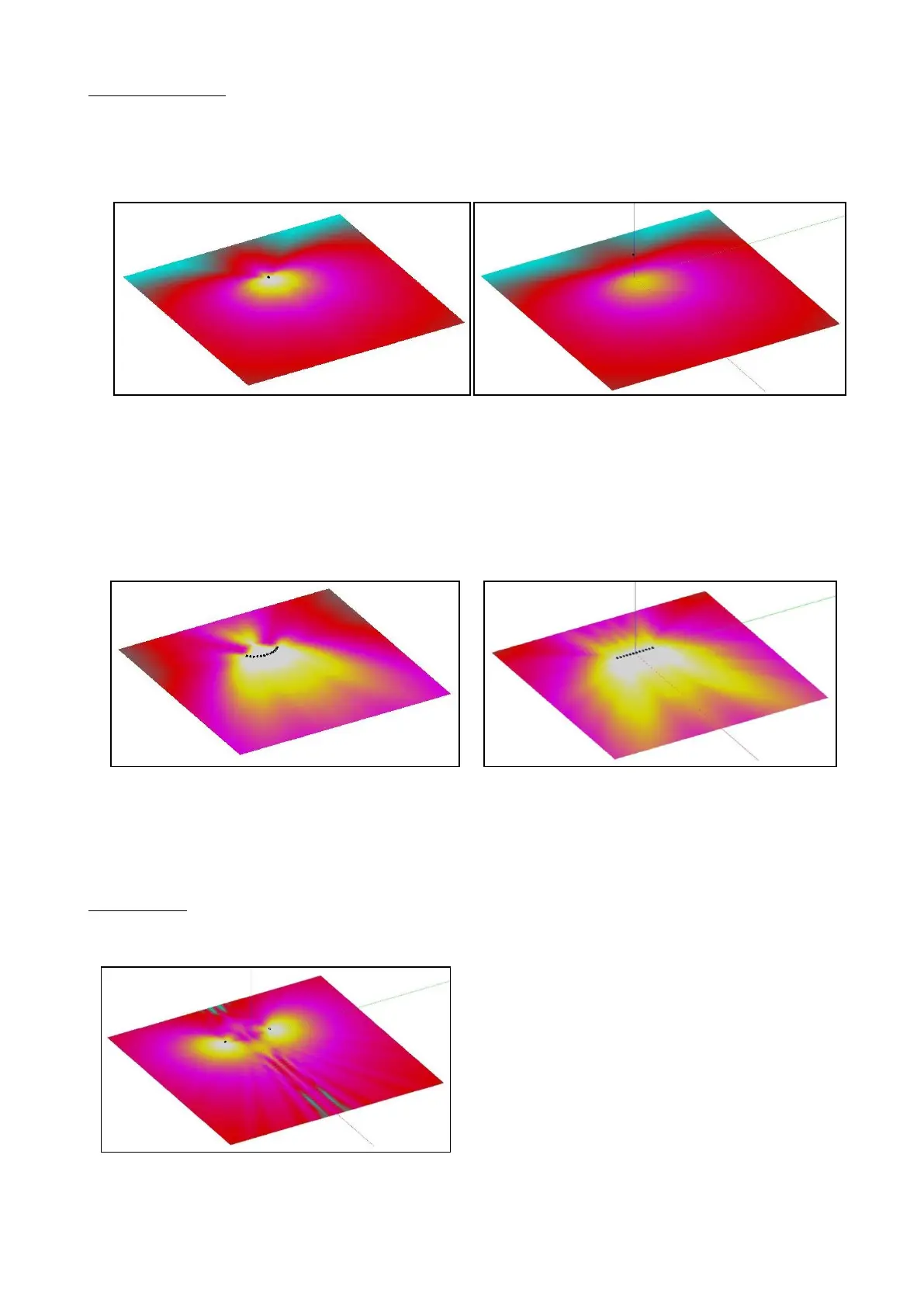GENERAL GUIDELINES FOR SUBWOOFER DESIGN
Page 40 / 76 System Manual RS Series
6.3 Monophonic Design
Left and Right subwoofer arrays can be merged into a monophonic system so that interferences no longer exist.
When using few cabinets, this can be done by installing these cabinets at the centre front stage. If cabinets are set on the ground
in front of the stage, level discrepancy from first to last rows will be important. Flying cabinets above centre stage will reduce
first to last rows discrepancies significantly.
CENTRE STACKED DIRECTIONAL SUBWOOFER CENTRE FLOWN DIRECTIONAL SUBWOOFER
When using a larger amount of cabinets, these can then be installed all across the stage provided distance between units does
not exceed half the wavelength of the upper frequency limit (1.7m/5.6ft at 100 Hz). Array coverage can then be adjusted
geometrically (by curving the array horizontally so that it matches the audience area, which creates an asymmetrical front stage
to rear stage pattern with a “hot” point on stage) or electronically (by implementing a delay that increase from the centre to the
sides, which creates a symmetrical pattern front to rear). In both cases, omnidirectional subwoofers should be avoided so low
frequency that level on stage does not exceed level in the audience.
CURVED SUBWOOFER ARRAY ACROSS STAGE STRAIGHT DELAYED SUBWOOFER ARRAY ACROSS STAGE
Main drawback of monophonic designs as the ones described above is inconsistent phase relationship between subwoofer
arrays and main systems over the audience area (lack of impact in the 80Hz-125Hz bandwidth).
6.4 Stereo Design
If stereophonic implementation has to be maintained, then Left and Right array coverage patterns have to be as independent
as possible – ie coverage overlap from Left to Right has to be minimized.
When using few cabinets, minimizing overlap can only be achieved
with directional devices by rotating the subwoofers 30° to 45°
outwards (rotating an omnidirectional subwoofer makes no
difference in the coverage pattern).
When using a larger amount of cabinets, Left and Right subwoofers arrays must be designed so that level drops as much as
possible inwards, and is maintained as going outwards. Therefore, main axis efficiency must be orientated outwards (through
use of delays or curving the array outward as in below figure). Such arrays must be experimented playing one side only to check
